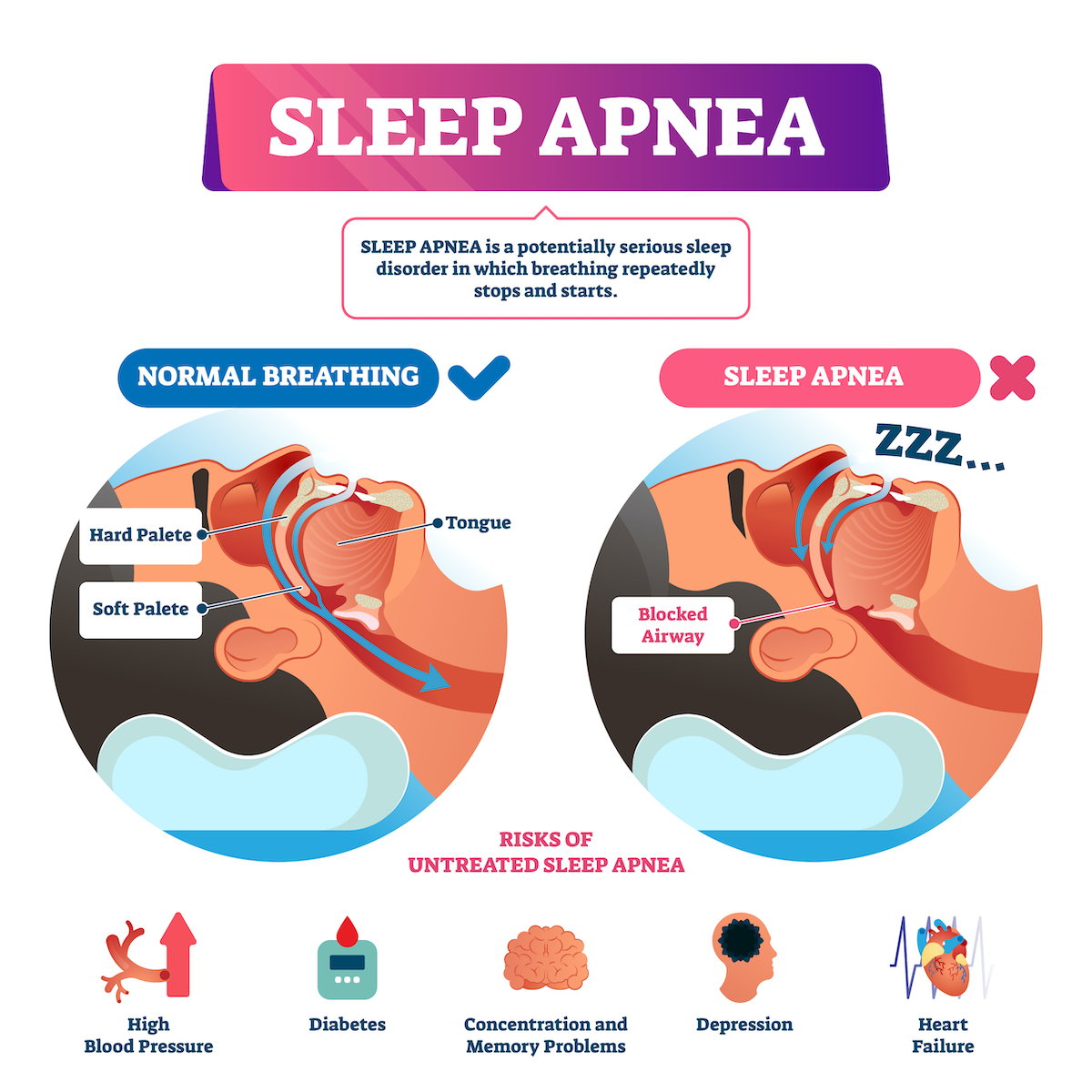Sleep apnea you’ve probably heard of it, but what is it? Is it life-threatening? And how common is it? Worldwide, about 5% to 10% suffer from (undiagnosed) sleep apnea; in the United States, it is about 22 million cases. This makes it one of the biggest health problems in our country and also the rest of the world. Therefore, everyone needs to know what this sleep disorder is, how to recognize it, and what to do if you suspect that you or a loved one is suffering from it.

What Is Sleep Apnea?
First, it’s good to know what sleep apnea is. You’ve already read it’s a sleep disorder, but how does it affect the body and sleep? Sleep apnea is a disorder that stops you from breathing while you’re asleep. You don’t suffocate because the resulting lack of oxygen activates a reflex that wakes you up just in time to resume breathing. Although this survival reflex keeps you alive, it also wakes you up several times a night, constantly interrupting your sleep pattern. As a result, you don’t sleep well – so you don’t rest either – and dangerous health problems, such as heart problems and other life-threatening complications.
Types & Causes of Sleep Apnea
There are three types of sleep apnea, which have two different causes. The first one is called ‘obstructive sleep apnea’ (OSA) and is caused because the airway being blocked. The second one is called ‘central sleep apnea’ (CSA) and is caused because the brain having issues with controlling breathing. The third type is a mixed form of the above-mentioned types and is called mixed or complex sleep apnea.
Both types have underlying reasons that cause the blockage or the brain malfunctioning. Possible causes of OSA include being overweight or obese, structural causes, like having an underbite or a jaw far too small, or genetic conditions that affect the shape of the head/neck, like Down Syndrome. Possible causes of CSA include heart failure, low blood oxygen levels, nervous system damage to the brain stem or spinal cord, and nervous system conditions, like ALS.
The worse your sleep apnea is, the more often you wake up at night. This severity is classified into 3 categories: mild, moderate, and severe. Mild sleep apnea is when a person stops breathing 5 to 15 times an hour and wakes up. For moderate, it is 15 to 29 times per hour and for severe, it is 30+ times. Fortunately, there are several ways to treat this sleep disorder, but you do need the right diagnosis before your professional healthcare provider can set up a treatment plan.

Symptoms of Sleep Apnea
The big question is of course: “How do I recognize it?” Many symptoms warn you or a loved one, something is going on. Warning signs include:
- Feeling tired/exhausted when waking up
- Feeling sleepy/drowsy during the day
- Snoring
- Mood changes
- Memory loss, trouble concentrating, or other brain-related issues
- Waking up multiple times at night
- Unusual breathing patterns
- Pauses in breathing patterns while you’re asleep that others notice
- Insomnia
- Night sweats
- Sexual dysfunction
- Waking up out of breath or like you’re choking
- Headaches
There are some symptoms you can’t recognize yourself. So if you have suspicions and want to check this first, ask a trusted friend or family member to watch you for a night while you sleep.
Are There Any Treatment Options?
Some of these symptoms are harder to recognize than others, which is why it’s important to visit your professional healthcare provider when you suspect a loved one – or you – suffer from undiagnosed sleep apnea. Your healthcare provider will examine you and take an overnight sleep test, this can be at home or in a specialized clinic or hospital. Once the diagnosis is made, your healthcare provider will set up a treatment plan. Treatment options include:
- Weight loss
- Sleep aid & position changes when asleep
- Nasal sprays and/or nasal strips
- Treating the underlying condition
- Positive airway pressure
- Adaptive ventilation
- Surgery
- Nerve stimulators
- Medication
Sleep apnea is a serious condition with possible deathly complications, so make sure to contact your professional healthcare provider when you suspect you’re suffering from this! The right treatment can help you feel better. For more information and possible treatment options, continue your online search here:

